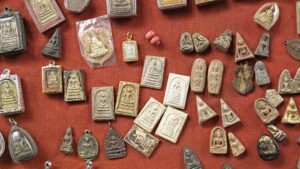Our perception of authority is similarly influenced by these pervasive societal norms. We’ve been conditioned to believe that a person’s position or attire, often a reflection of their societal standing, lends credibility to their opinions and assertions. This conditioning seeps deep into our subconscious mind, triggering automatic responses of respect and deference. The more prosperous or powerful an individual appears, the more likely we are to accept their words without challenge or skepticism.
This societal reflex is particularly evident in our attitudes towards wealth. Success, as defined by mainstream society, is often equated with material affluence. This has led to a widespread, subconscious belief that wealth is an indicator of wisdom, knowledge, and the ability to make sound judgments. As a result, we tend to lend our trust and faith to those who display signs of wealth, often overlooking the need for further validation or evidence to support their claims.
However, this belief system is fundamentally flawed. Wealth, like any other external attribute, doesn’t necessarily correlate with wisdom, knowledge, or the capacity to make wise decisions. It’s merely a reflection of an individual’s financial prowess, which can be influenced by a multitude of factors, including luck, privilege, and sometimes, unethical practices.
Yet, we find ourselves entranced by the allure of wealth and power, often disregarding the need for critical thinking and independent judgment. We allow ourselves to be swayed by elegant rhetoric, charismatic personalities, and ostentatious displays of affluence. In doing so, we surrender our power of independent thought and critical analysis to those who may not have our best interests at heart.
This isn’t an indictment of wealth or power, but rather a call to reevaluate the way we perceive them. It’s crucial that we recognize the potential pitfalls of blind faith in authority and affluence, and strive to cultivate a culture of critical thinking, skepticism, and independent judgment.
Conversely, consider how society often disregards or undermines the words of those who lack material wealth. Are we not guilty of dismissing their voices, their wisdom, simply because they do not conform to our societal constructs of success? Imagine a spiritually attained master, someone who has renounced worldly possessions in pursuit of wisdom and truth. Though he may be brimming with profound insights and knowledge, he is often overlooked, his words falling on deaf ears due to his material poverty.
Is it not perplexing that we often gauge a person’s credibility based on their financial status rather than their wisdom or integrity? What does this say about our societal values and belief systems? Why does society equate success with wealth, and what implications does this belief have on our individual and collective consciousness?
Let’s envision a world where success is defined not by material wealth, but by attributes such as kindness, empathy, and understanding. How might our lives and society at large change under such a perspective? Are we ready to challenge the societal norms that have been imposed upon us, even if it means going against the tide?
Moreover, how can we cultivate a culture of critical thinking and skepticism without fostering cynicism and distrust? Is there a way to reclaim our inherent wisdom and intuition and to balance it with the societal structures and rules? Would such a shift impact our personal growth and societal development positively?
The journey to such a transformation involves venturing into the realm of the unknown, questioning our deeply rooted beliefs, and embracing the wealth of wisdom that lies within each of us. It requires us to value the diversity of human experience over conformity to societal norms.
Finally, ponder upon this delicate balance: How can we uphold societal structures and rules while preserving the freedom to live authentically and express our individuality?
These questions are meant to stimulate introspection, incite discussion, and foster a deeper understanding of ourselves and the world around us. The purpose is not to provide definitive answers, but rather to encourage each of us to become the mindful gardeners of our inner landscapes.




